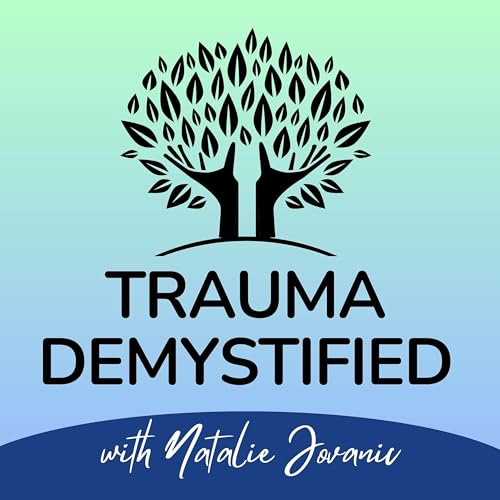
Trauma Demystified
カートのアイテムが多すぎます
カートに追加できませんでした。
ウィッシュリストに追加できませんでした。
ほしい物リストの削除に失敗しました。
ポッドキャストのフォローに失敗しました
ポッドキャストのフォロー解除に失敗しました
-
ナレーター:
-
著者:
-
Natalie Jovanic
概要
Welcome to Trauma Demystified by Bright Horizon Therapies, hosted by Natalie Jovanic, a Complex Trauma Coach and Trauma Counsellor with over 15 years of experience supporting adults healing from complex trauma, childhood trauma, and relational trauma.
If you function well on the outside but internally feel stuck in patterns of freeze, overthinking, people-pleasing, or relational confusion, this podcast is for you.
With lived experience and 15 years of clinical practice, Natalie explores what healing from complex trauma actually looks like — beyond symptom management and beyond surface-level advice.
Drawing from the Integrative Trauma Recovery Model™, you'll learn why your nervous system reacts the way it does, how trauma fragments parts of the self, and what structured, integrative recovery can involve.
These conversations are honest, nuanced, and grounded in real therapeutic practice. Because healing isn't about avoiding triggers — it's about building capacity, restoring self-trust, and learning how to live differently.
If you're ready to move from insight to integration, you're in the right place.
© 2026 Trauma Demystified-
 31 分
31 分カートのアイテムが多すぎます
ご購入は五十タイトルがカートに入っている場合のみです。カートに追加できませんでした。
しばらく経ってから再度お試しください。ウィッシュリストに追加できませんでした。
しばらく経ってから再度お試しください。ほしい物リストの削除に失敗しました。
しばらく経ってから再度お試しください。ポッドキャストのフォローに失敗しました
ポッドキャストのフォロー解除に失敗しました
-
 40 分
40 分カートのアイテムが多すぎます
ご購入は五十タイトルがカートに入っている場合のみです。カートに追加できませんでした。
しばらく経ってから再度お試しください。ウィッシュリストに追加できませんでした。
しばらく経ってから再度お試しください。ほしい物リストの削除に失敗しました。
しばらく経ってから再度お試しください。ポッドキャストのフォローに失敗しました
ポッドキャストのフォロー解除に失敗しました
-
 29 分
29 分カートのアイテムが多すぎます
ご購入は五十タイトルがカートに入っている場合のみです。カートに追加できませんでした。
しばらく経ってから再度お試しください。ウィッシュリストに追加できませんでした。
しばらく経ってから再度お試しください。ほしい物リストの削除に失敗しました。
しばらく経ってから再度お試しください。ポッドキャストのフォローに失敗しました
ポッドキャストのフォロー解除に失敗しました


